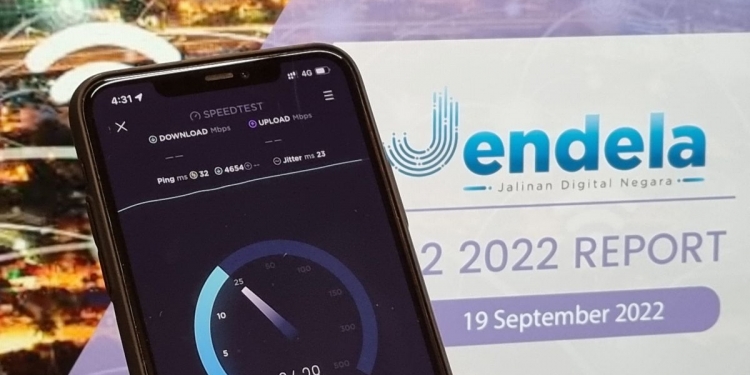Despite internal and external challenges, the Malaysian Communications and Multimedia Commission (MCMC) said it is still on track to achieve its stipulated JENDELA targets. Announced in 2020 during the pandemic, JENDELA is an initiative to speed up fiberisation and expedite the expansion and improvement of existing 4G networks. The regulator has recently released its JENDELA Q2 2022 report, which provides a snapshot of the progress six months before the end of Phase 1 that’s running until the end of 2022.
Malaysia still on track to achieve JENDELA Phase 1 targets
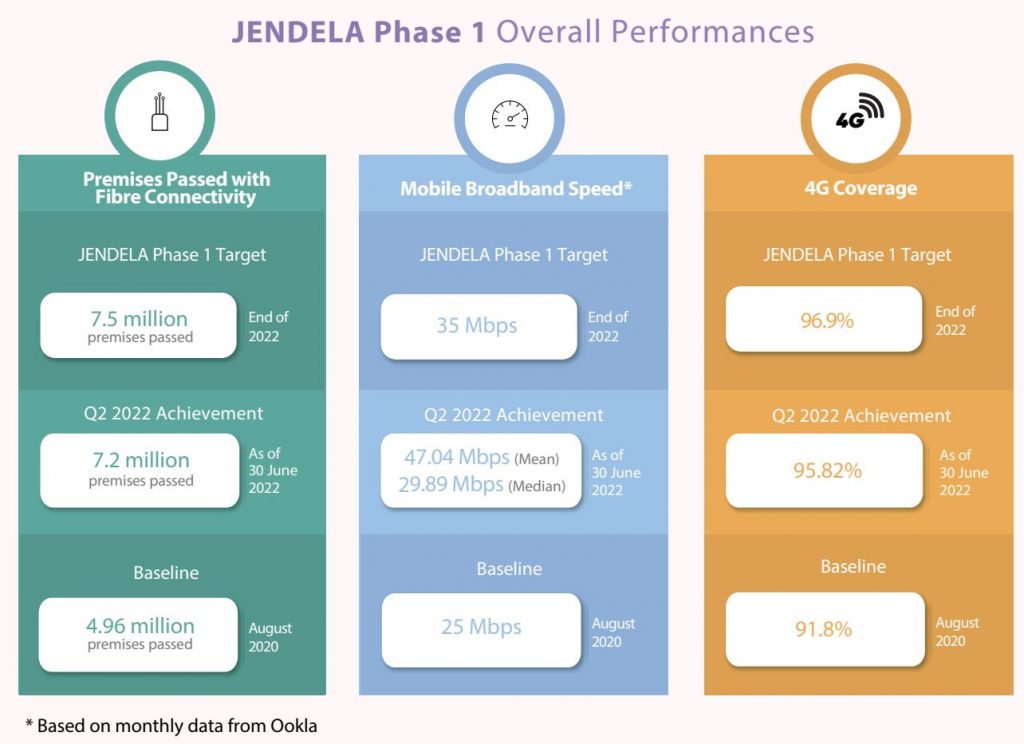
As of 30th June 2022, a total of 7.2 million premises are fibre passed, which is 96% of the 7.5 million premises target. Meanwhile, 4G coverage currently stands at 95.82% which is very close to its target of achieving 96.9% 4G population coverage by the end of this year.
When it comes to mobile 4G speeds, MCMC has recorded an average of 47.04Mbps (mean), exceeding its targeted 35Mbps average speed based on data obtained from Ookla’s speed test. Using the median calculation, Malaysia currently records an average speed of 29.89Mbps. The average speed figures for the JENDELA Q2 2022 report were obtained in June 2022.
According to Ookla’s latest data dated August 2022, Malaysia is currently doing an average download speed of 49.79Mbps (mean) or 30.50Mbps (median).
New 4G towers erected and upgraded ahead of targets
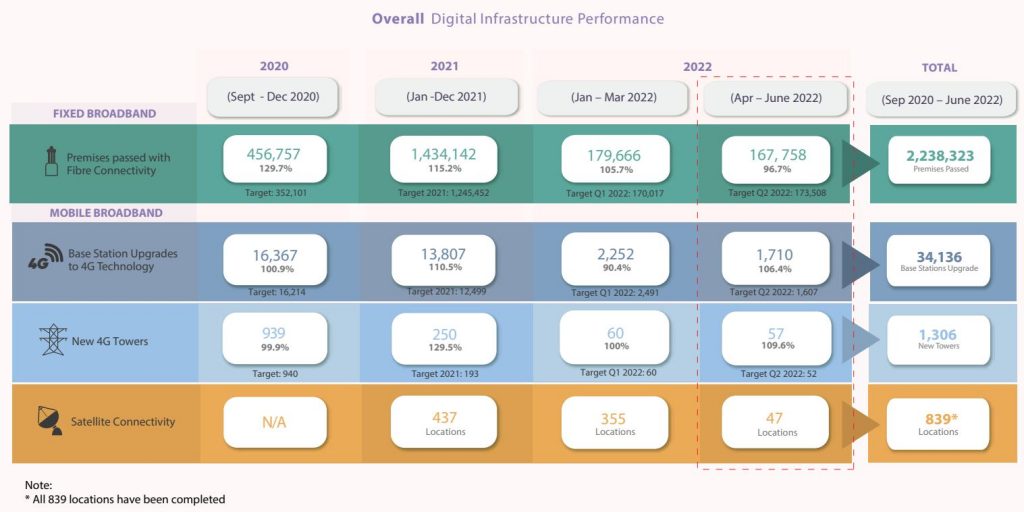
Between April and June this year, the telcos collectively have added and upgraded 4G towers exceeding JENDELA’s quarterly target. In Q2 alone, a total of 1,710 base stations have been upgraded while 57 new towers were erected during the same period.
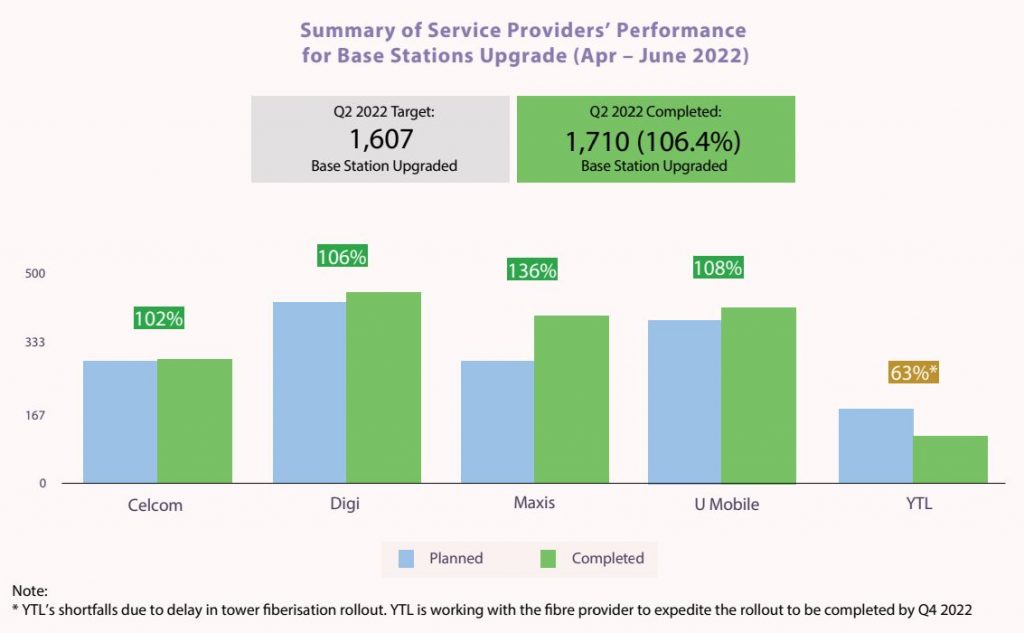
The big four telcos such as Celcom, Digi, Maxis and U Mobile have upgraded more base stations than originally planned for Q2 2022. However, YTL Communications (Yes 5G) upgraded only 63% of their planned base stations. The report stated that YTL’s shortfalls are due to delays in fiberisation rollout and they are working to expedite the rollout to be completed by Q4 2022.
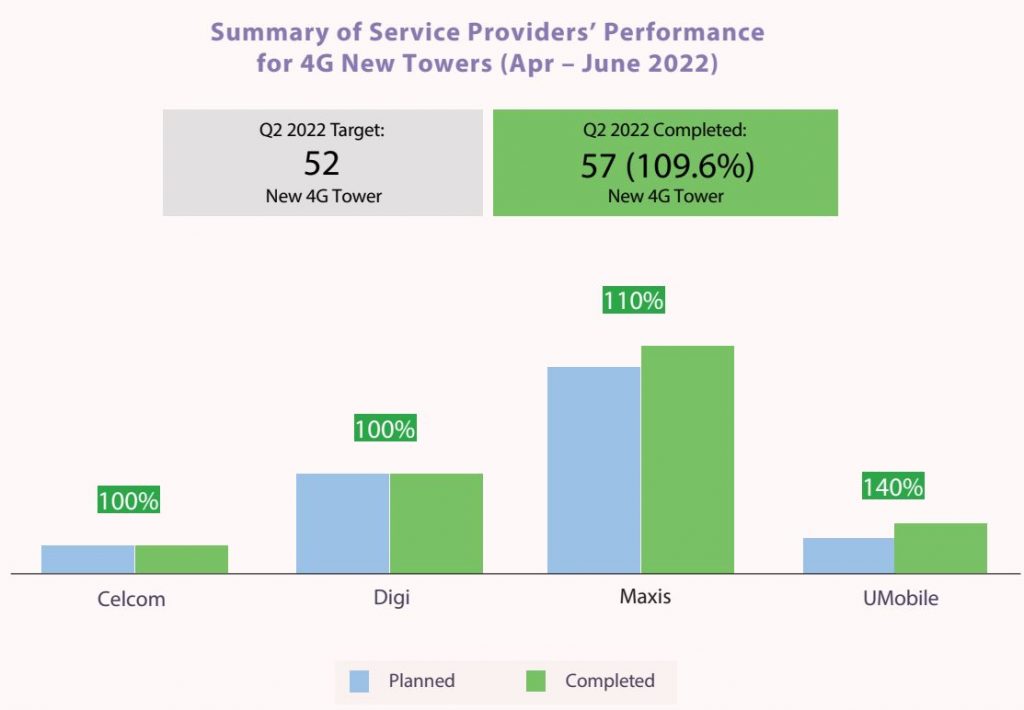
For new towers, the MCMC has also reported that Celcom and Digi have completed their deployment according to plan, while Maxis and U Mobile have deployed more towers than scheduled. For areas without fibre or 4G access, 839 identified rural locations have been successfully deployed with satellite connectivity.
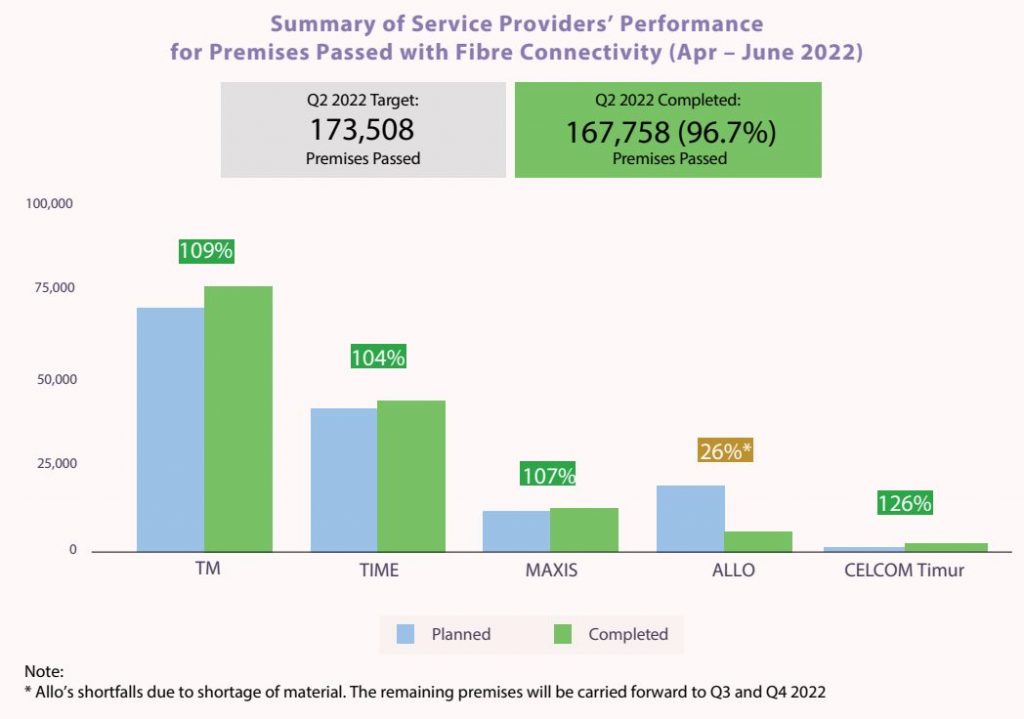
Increasing fibre broadband access is also a key metric under JENDELA. Telekom Malaysia (TM) remains the key driver for fiberisation and they have exceeded its planned premises passed target for Q2 2022 alongside Time, Maxis and Celcom Timur. TNB’s Allo fell short by meeting just 26% of its quarterly target. According to MCMC, Allo’s shortfalls were due to shortage of material and they will catch up in Q3 and Q4 2022.
Number of complaints dropped by 88% for June year-on-year
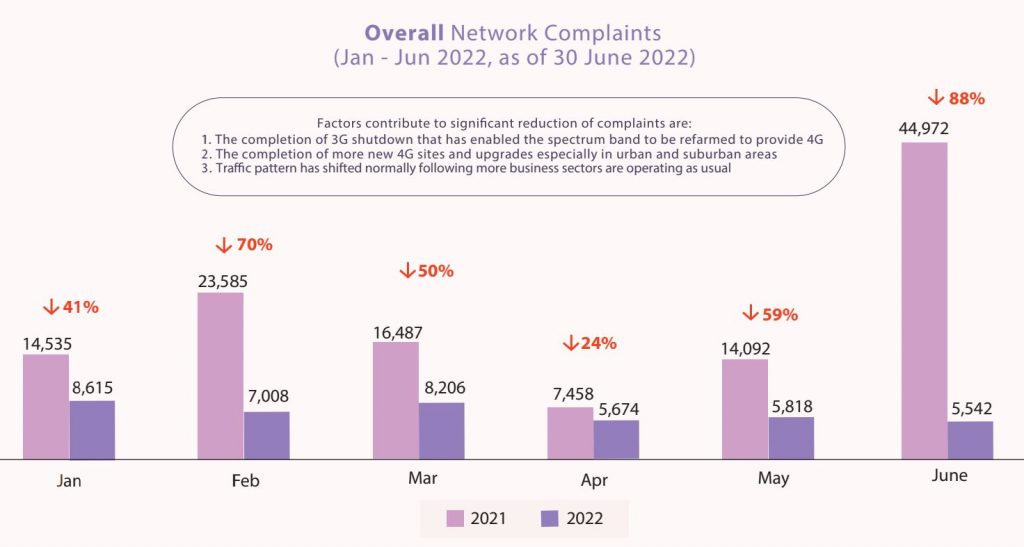
With increased 4G coverage and average speeds, the MCMC has reported a downward trend for overall network complaints. Between January to June 2022, they received 40,863 network complaints which are 66% lower than the same period in the previous year which recorded 121,129 complaints. In June 2022 alone, the number of complaints dropped by a staggering 88% to 5,542 versus a total of 44,972 complaints received in June 2021.
The MCMC said the reduction of complaints are attributed to the completion of 3G shutdown which enabled the spectrum to be refarmed for 4G use, followed by the additional completion of new and upgraded 4G sites in both urban and suburban areas. On top of that, there’s also a traffic pattern shift following Malaysia’s transition to the endemic phase from 1st April.
If you’re not happy with your current provider, the MCMC has urged consumers to report and provide feedback through its JENDELA app and website. You can also check out the Q2 2022 JENDELA report here.

